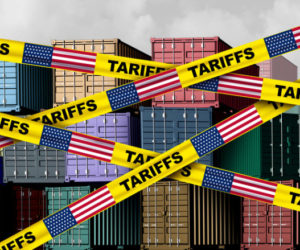UPDATED
The NYTimes added to its stable of conservative op-ed columnists by hiring Bret Stephens, a former Wall Street Journal columnist with a Pulitzer for commentary.
His inaugural column, Climate of Complete Certainty, was meet with vociferous pushback.
Someone, somewhere, thought a Bret Stephens op-ed was worthy of a push notification. That person was wrong. pic.twitter.com/flLj393At2
— Felix Salmon (@felixsalmon) April 28, 2017
On Friday, Bennet’s new hire published “Climate of Complete Certainty,” a dreadfully argued piece contending that … well, the point is buried in false starts, bogus reasoning and imprecise writing… As this blog noted on Friday, speaking of climate change as a future problem shortchanges the entire issue. It’s already inundating people, as the New York Times itself has reported on the other side of its news-opinion firewall.
[T]he column reinforces the idea that [people who are skeptical about climate change] might have a point. The New York Times push notification that went out Friday afternoon about the column said as much—“reasonable people can be skeptical about the dangers of climate change,” it read. That is not actually true, and nothing that Stephens writes makes a case for why it might be true. This column is … a dog whistle to people who feel confused about climate change. It’s nothing more than textbook denialism.
A New Yorker fact checker who understands what journalism is supposed to do pic.twitter.com/ZEIglfxd5x
— David Klion (@DavidKlion) April 29, 2017
I'm on hold with the @nytimes trying to cancel. They told me they're slammed with people canceling subscriptions because of Bret Stephens.
— Sean Kent (@seankent) April 29, 2017
Why I cancelled my @nytimes subscription. @BretStephensNYT pic.twitter.com/A3lFZNJdhY
— Stefan Rahmstorf (@rahmstorf) April 27, 2017
And NY Times reporters took issue with the column:
Astonishing how much the waters have been muddied on this issue pic.twitter.com/05vKCwS7lM
— Zach Johnk (@zachjohnk) April 28, 2017
"The New York Times newsroom and the New York Times opinion section are totally separate things!" he shouted into the void
— Tom Wright-Piersanti (@tomwp) April 28, 2017
Scientists got into the act
Sincere offer for @BretStephensNYT: there's an entire field of folks who study robust climate policy under @deepuncertainty. Come talk w/ us
— Costa Samaras (@CostaSamaras) April 28, 2017
"Climate of Risk and Uncertainty": Response to @BretStephensNYT attack on climate science. Blog: https://t.co/5dT15gih9m pic.twitter.com/RH8XMFPl1K
— Ken Caldeira (@KenCaldeira) April 29, 2017
Major report prompts warnings that the Arctic is unraveling https://t.co/ApsguPngQO pic.twitter.com/grRbMuRK27
— Scientific American (@sciam) April 28, 2017
Some quick thoughts on @BretStephensNYT take on climate science, policy, & implications of @deepuncertainty: https://t.co/1ZAUZemhvf pic.twitter.com/pTvmZ27o4R
— Andy Revkin (@Revkin) April 29, 2017
Analysis of the argument
Let’s start with the headline: “Climate of Complete Certainty”.
Science does not argue “complete certainty.” With this beginning – which he revisits in the column – Stephens rests his case on a strawman, a common rhetorical fallacy.
Claiming total certainty about the science traduces the spirit of science and creates openings for doubt whenever a climate claim proves wrong.
Dr. Joe Romm, the founding editor of Climate Progress writes:
In reality, pretty much every aspect of science has some aspect of uncertainty, error bars, or ranges of outcomes?—?including essentially every medical course of treatment you were ever recommended and every science policy recommendation ever offered by the scientific community to policymakers.
Ken Caldeira, Carnegie Institution for Science, is blunt:
No working scientist claims 100% certainty about anything.
Stephens is arguing with a ghost, something that doesn’t exist.
His essay begins with four paragraphs about the Clinton campaign, then this:
There’s a lesson here. We live in a world in which data convey authority. But authority has a way of descending to certitude, and certitude begets hubris. From Robert McNamara to Lehman Brothers to Stronger Together, cautionary tales abound.
Yes, Stephens is setting up a column about climate change — what most of us call hard science — with anecdotes about political polls (which were correct, by the way — you know, margin of error) and memorable non-scientific decisions.
Is there anyone who truly thinks that public opinion research has the same degree of rigor as climatology?
He begins his specific criticism of climate science with a Pew Research Center report about public opinion:
Just 36 percent of Americans care “a great deal” about the subject.
How can that be, he asks.
Pew points out that “liberal Democrats and conservative Republicans see climate-related matters through vastly different lenses.” But despite this partisan difference, only 1-in-4 Americans care very little (‘not at all’, 8%; ‘not too much’, 18%) about climate change.
Just like big tobacco, industry seeks to manufacture doubt.
First column from @BretStephensNYT is straight out of Exxon playbook. A playbook originally reported by the @nytimes, of all places. pic.twitter.com/cNBrDWRDiu
— Tom Steyer (@TomSteyer) April 28, 2017
In its report, Pew points out that Democrats assess science differently than Republicans:
To the extent that science knowledge influences people’s judgments related to climate change and trust in climate scientists, it does so among Democrats, but not Republicans.
Consequently, the detail that Stephens skips in his “36%” quote:
This group is composed primarily of Democrats (72%), but roughly a quarter (24%) is Republican.
Despite industry efforts to create doubt, most Americans (67%) believe climate scientists should “have a major role” in climate policy. Only 1-in-10 think they should have no role.
Stephens presents one scientific claim, and it’s wrong
Anyone who has read the 2014 report of the Intergovernmental Panel on Climate Change knows that, while the modest (0.85 degrees Celsius, or about 1.5 degrees Fahrenheit) warming of the Northern Hemisphere since 1880 is indisputable, as is the human influence on that warming, much else that passes as accepted fact is really a matter of probabilities.
- “The 0.85°C is not ‘modest’,” according to Romm. Instead, “[i]t is roughly the same as the entire variation the Earth experienced during the several thousand years of stable climate that enabled the development of modern civilization.”
- The 0.85°C number is presented in the report as a range – 0.65 to 1.06 °C – because these reports are the antithesis of black-and-white thinking.
- The 0.85°C number is global, not North America. The Northern Hemisphere is warming more quickly than Southern (we have more land).
Climate scientists speak and write in probabilistic terms, even when discussing human influence on warming. “Indisputable” claims do not appear in the IPCC reports. From the Pew study Stephens cites:
The Intergovernmental Panel on Climate Change (IPCC), which reflects scientific opinion on the topic, stated in the forward to its 2013 report, “the science now shows with 95 percent certainty that human activity is the dominant cause of observed warming since the mid-20th century.” (emphasis added)
Stephens ducks ideology in his column, but Pew does not:
Politics is the central factor shaping people’s beliefs about the effects of climate change, ways to address warming, trust in climate scientists.
Columns like this one aid and abet that doubt.
Update 1 May 2017: the column ran on Friday. Sometime on Monday, the NYT corrected the only scientific claim in the essay.

Image: Lynnwood Wa sunset, 2012
Cross-posted from WiredPen
Known for gnawing at complex questions like a terrier with a bone. Digital evangelist, writer, teacher. Transplanted Southerner; teach newbies to ride motorcycles. @kegill (Twitter and Mastodon.social); wiredpen.com
















